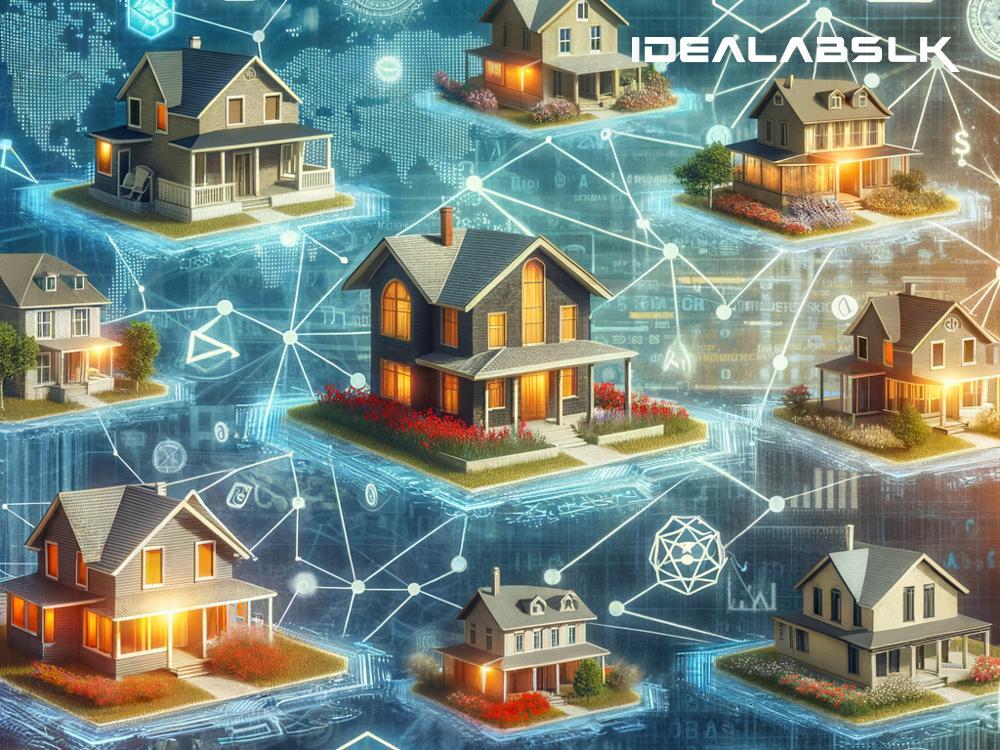How Blockchain is Reshaping Real Estate Transactions for Investors
The real estate world is buzzing with a new tech wonder - blockchain. A marvel that first shot to fame with Bitcoin has now found its way into various sectors, including real estate. But what's all the fuss about? How is this fancy term reshaping real estate transactions for investors? Let's dive in, keeping it simple.
The Traditional Real Estate Scene: Complex and Cumbersome
Traditionally, buying or selling a property isn't a walk in the park. There are heaps of paperwork, a never-ending waiting game for approvals, the need for middlemen like brokers and lawyers, and, of course, hefty fees. For investors especially, managing a portfolio of properties can be a logistical nightmare, not to mention the risk of fraud or errors in property records.
Enter Blockchain: The Game Changer
Blockchain technology, at its core, is a decentralized ledger. Think of it as a massive digital record book accessible by many but doesn't belong to a single entity. This technology introduces transparency, security, and efficiency - three elements that are somewhat lacking in traditional real estate transactions.
Simplifying Transactions
Blockchain can simplify the buying and selling process substantially. How? By digitizing property records, agreements, and even funds. Imagine executing a property deal without the back-and-forth of paper documents but with digital 'smart contracts.’ These contracts automatically process transactions and property transfers when predefined conditions are met, drastically reducing the need for middlemen and slashing transaction times.
Cutting Costs and Increasing Trust
Without the need for various intermediaries, blockchain can carve away at the additional fees charged in property transactions. Furthermore, the transparency and immutable nature of blockchain mean every transaction detail is recorded securely and openly. This not only builds trust among parties but also minimizes the risk of fraud, ensuring investors can breathe a little easier.
Tokenization: Property Investment Made Accessible
One of the most exciting ways blockchain is reshaping real estate for investors is through tokenization. This process involves dividing property into tradable shares or tokens on a blockchain. For investors, this means being able to buy into real estate with much smaller amounts of capital, making property investment more accessible to a broader audience. Moreover, these tokens can be bought and sold like stocks on an exchange, offering liquidity in a market that is traditionally anything but.
Real-life Applications Today
Several startups and companies are already walking the blockchain talk in real estate. From platforms enabling the tokenization of properties to blockchain-based real estate marketplaces streamlining transactions - the future is unfolding before our eyes. Moreover, governments around the globe are exploring blockchain for land registries, aiming to alleviate issues of inefficiency and corruption.
Challenges and Considerations
Despite the optimism, integrating blockchain into real estate is not without challenges. Regulatory uncertainty, the digital divide, and the need for a more widespread understanding of blockchain are significant hurdles. Moreover, the real estate sector is notoriously resistant to change, and a shift towards blockchain at scale will require a collective effort from all stakeholders involved.
The Future is Bright
The journey of blockchain in real estate is just beginning. As the technology matures and society adapts, the potential for transformative change is immense. For investors, blockchain not only promises more streamlined transactions and broader access to the market, but it also opens up new avenues for innovation and efficiency.
In conclusion, blockchain technology is rapidly gaining ground, offering a fresh perspective on how real estate transactions can be conducted. By reducing complexities, enhancing transparency, and making investment opportunities more accessible, blockchain is not just reshaping real estate transactions for investors; it's setting the stage for a more inclusive and efficient market. The challenges ahead are not insignificant, but with the pace of technological advancement and a growing appetite for better solutions, blockchain in real estate is set to move from a buzzword to a standard practice. For investors and industry players keeping an eye on the horizon, the message is clear: the future of real estate transactions, fueled by blockchain, promises to be exciting, indeed.

